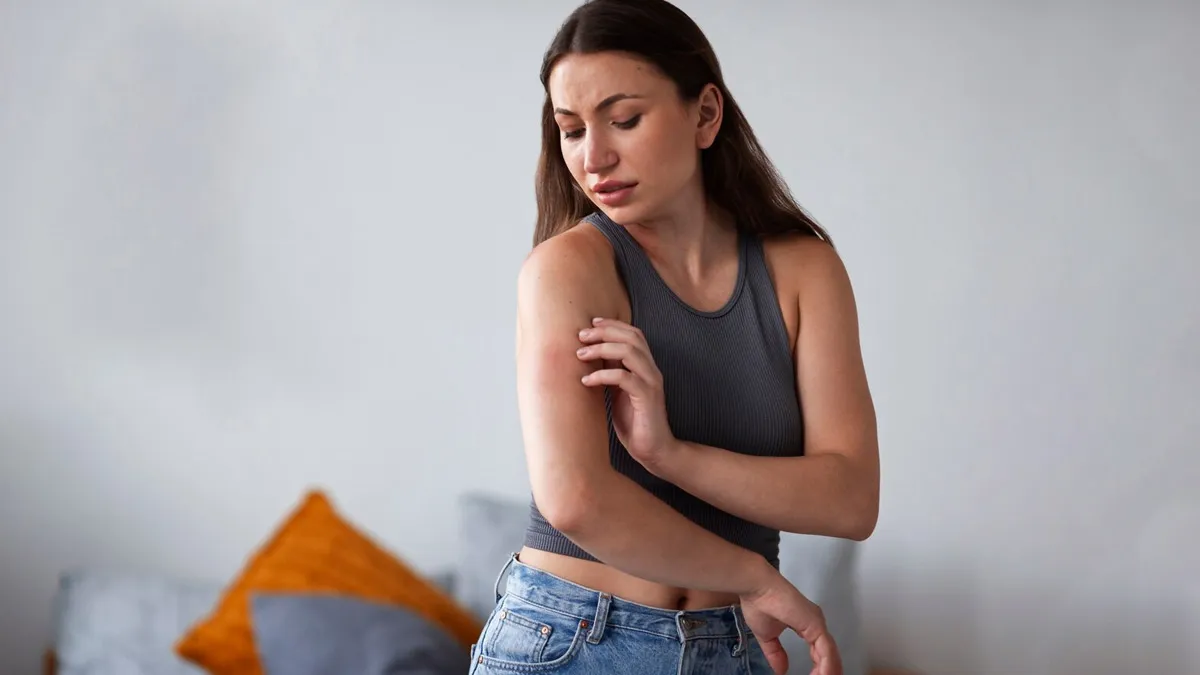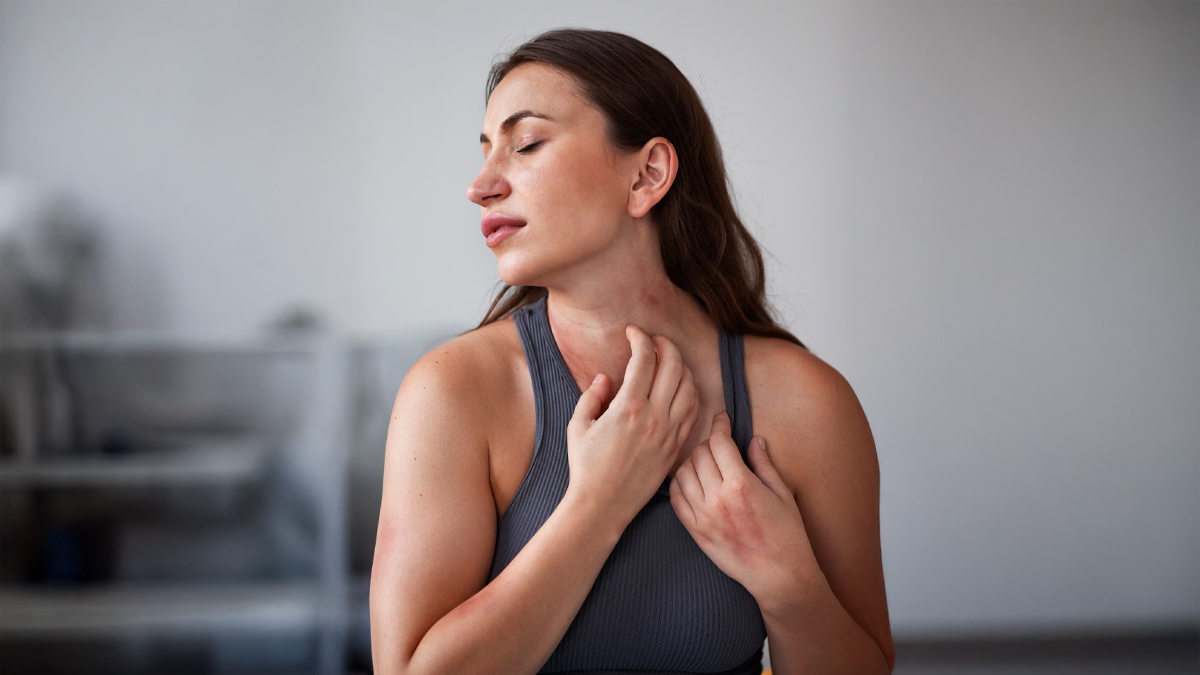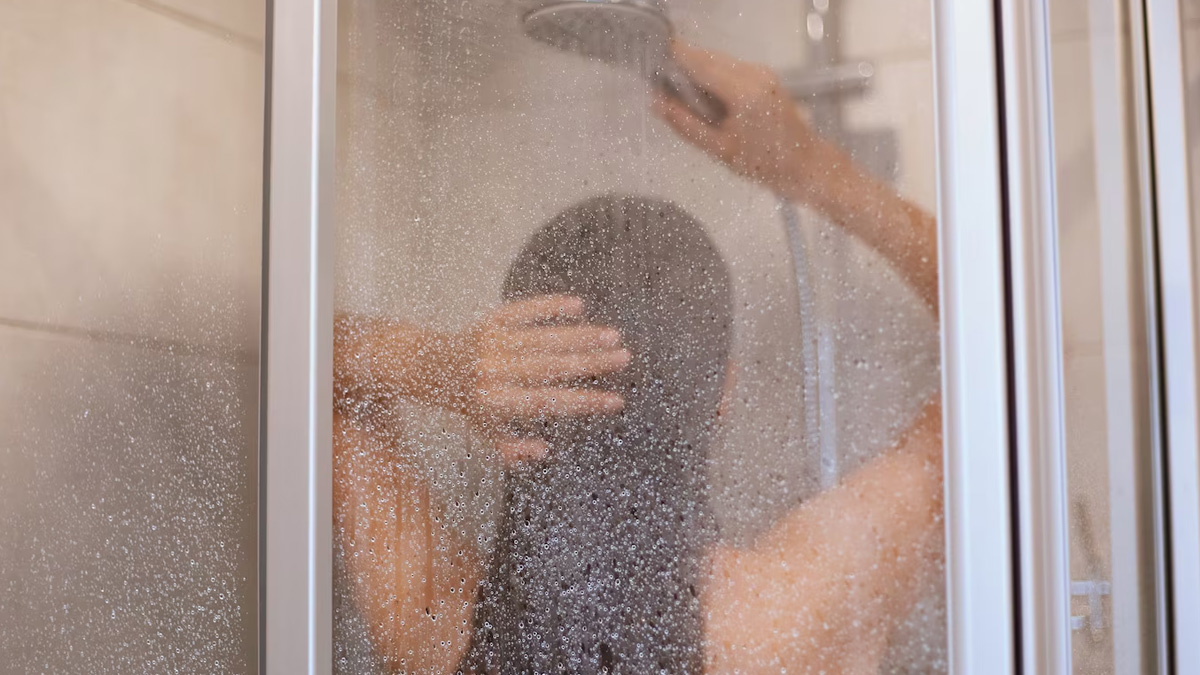
Do you complain of itchy skin every time you take a shower? Do you wonder why you find yourself scratching away at that annoying itch, wondering what is causing it? Post-shower itchiness is a common complaint that can be more than just a minor nuisance; it can be a sign that your skin is trying to tell you something.
Table of Content:-
Why Does It Happen?

That post-shower itch, medically referred to as aquagenic pruritus in some cases, can have several causes, most of which are harmless but irritating. According to the Indian Journal of Dermatology, this skin disease is characterised by severe itching in response to contact with water without any visible skin lesions. You may experience symptoms immediately after coming into contact with water, and they may last for an hour or longer.
The sensation often happens because of how water and temperature interact with your skin. Your skin has a protective outer layer that keeps moisture in and irritants out. When this layer gets disrupted, it can lead to that annoying tingling or itching sensation.
Also Read: Natural Care: Home Remedies To Prevent And Treat Folliculitis
Causes Of Itching After Taking A Shower
1. Hot Water and Long Showers

Do you feel tempted to indulge in a hot shower after a tiring day? While a hot water shower may be relaxing, it can strip your skin of its natural oils. This makes your skin dry and more sensitive, especially if you linger in the hot water for too long, particularly in winter when the air is already dry.
2. Dry Skin (Xerosis)
If you naturally have dry skin or don’t use moisturiser, taking a shower can make it even drier. Dry skin loses its protective barrier, making your nerves more sensitive to water and temperature changes.
3. Soap and Shampoo Residue
Harsh soaps or shampoos containing overpowering fragrances, sulphates, and alcohol dry out and irritate your skin further. If some of these products are left on your skin after washing, they can cause itching.
4. Hard Water
If you live in an area with hard water (high content of minerals, such as calcium and magnesium found in water), it can leave a residue on your skin. This residue can disrupt your skin's natural balance, leading to itchiness.
5. Underlying Skin Conditions
Eczema, psoriasis, or dermatitis can appear after showering. They are conditions that compromise your skin barrier, so your skin reacts more to temperature and moisture changes.
6. Rare Medical Causes
In rare instances, persistent itching after showering can be a sign of conditions, including polycythemia vera (a blood disease), liver disease, or allergies. Although it is rare, itching without any evidence of rash that persists should cause you to seek a doctor's visit.
Also Read: Itchy Back Syndrome: Try These DIY Natural Remedies For Managing Notalgia Paresthetica
How To Manage Itchy Skin After Taking Shower?
Most post-shower itching can be managed with a few simple adjustments:

- Turn Down the Heat: Use lukewarm showers rather than scalding hot ones. Your skin will appreciate it.
- Keep Showers Short: Limit your shower to 10 minutes to prevent over-drying.
- Moisturise Immediately: Apply a fragrance-free moisturiser within a few minutes of getting out to seal in moisture.
- Switch to Gentle Cleansers: Skip soaps with strong chemicals or overpowering fragrances. Opt for mild, pH-based cleansers.
- Use a Water Softener: If you have hard water, installing a softener can help reduce skin irritation.
- Pat Dry, Don't Rub: Too much towel drying can irritate your skin further. Instead, pat your skin dry.
When Should You See a Doctor?
An occasional itch after a hot shower is usually nothing to worry about. But if you notice:
- Severe itching with no visible rash
- Itchiness lasting more than an hour after taking a bath
- Redness, bumps, or scaling on the skin, or
- Other symptoms and signs, such as fatigue or bruising, occur without any clear reason
Itching that persists may be a sign of some underlying condition that requires treatment. In this case, you should consult a dermatologist or physician.
[Disclaimer: This article contains information for informational purposes only. Hence, we advise you to consult your professional if you are dealing with any health issue to avoid complications.]
Also watch this video
How we keep this article up to date:
We work with experts and keep a close eye on the latest in health and wellness. Whenever there is a new research or helpful information, we update our articles with accurate and useful advice.
Current Version